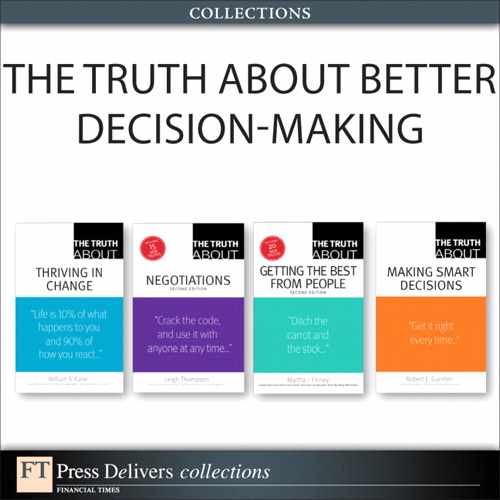Truth 15. The power of making the first offer
Conventional negotiation wisdom strictly cautions negotiators against opening first—to avoid tipping their hands. If everyone does this, you are liable to end up in a comical cat-and-mouse game in which both parties develop elaborate methods to avoid answering any questions as long as possible and eventually walk away without a deal.
I don’t know the origin of this bad advice, but I’d like to banish it right now. I researched the scientific literature and explored numerous studies that have investigated negotiators’ offer patterns and outcomes. In none of those investigations did it harm negotiators to open first. In fact, negotiators who make the first offer uniformly do better than those who don’t. One caveat: In the rare and undesirable situation in which the other party knows more about you than you know about him, it is a disadvantage to open first.
Why do negotiators who make the first offer do better? Your opening offer acts as a powerful psychological anchor in a negotiation. It carries a lot of weight. Your opening represents the most you can (usually) hope to get. Don’t underestimate how important opening offers are. Indeed, negotiators’ first offers can generally predict the outcome of a negotiation. Adam Galinsky and Tomas Mussweiler found that first offers correlate as much as 85 percent of the time with outcomes.6
Many negotiators live in fear of the winner’s curse, believing that the counterparty will gleefully and immediately accept their first offer.
Many negotiators live in fear of the winner’s curse, believing that the counterparty will gleefully and immediately accept their first offer. Don’t come to the silly conclusion that you can make outrageous offers and expect to do well. Unfortunately, offers wildly outside the zone of possible agreement (ZOPA) lose their anchoring power and lead to a chilling effect, where a negotiator grows cold on a deal because he feels that the other party is not bargaining in good faith, or even the boomerang effect, which occurs when a ridiculous offer invites an equally ridiculous counteroffer, often as a matter of spite. For these reasons, your ideal offer should be close to the other party’s barely acceptable terms.
No one is going to accept your first offer, so making a concession is inevitable.
Strategically speaking, your aspiration point should be slightly worse (for the other party) than your guess about the other party’s BATNA. The logic: No one is going to accept your first offer, so making a concession is inevitable. If you open with an offer that matches the other party’s barely acceptable terms, you’ll never end up there. It’s best, then, to open with a figure slightly worse than the counterparty’s barely acceptable terms. If your opening offer is dramatically worse, you create a chilling effect. If it is just a tiny bit worse, you are in the domain of the counterparty’s acceptability range. Offers in this range are, by definition, not insulting.
